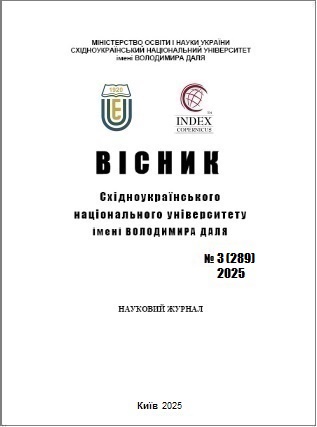Methodology for adapting management decisions for agro-industrial enterprises in times of crisis
DOI:
https://doi.org/10.33216/1998-7927-2025-289-3-110-119Keywords:
managerial decisions, adaptive management, agro-industrial enterprises, crisis situations, scenario planning, strategic adaptationAbstract
The article examines the methodology for adapting managerial decisions in agro-industrial enterprises under crisis conditions. Adaptive management serves as a key instrument for ensuring enterprise flexibility in an environment of high uncertainty. The adaptation process involves adjusting the management system to evolving external and internal conditions to minimise the negative impact of crises and ensure the sustainable development of enterprises. In times of economic and social instability, the adaptation of managerial decisions plays a crucial role in maintaining operational efficiency, ensuring business continuity, and preserving competitiveness.
The primary objective of adaptation is to enhance enterprise resilience to external shocks, optimise resource utilisation, and develop strategies aligned with emerging challenges. Adaptive managerial decisions integrate strategic and operational management, enabling enterprises not only to respond promptly to changes but also to build long-term competitive advantages. Key aspects of adaptation include increasing the flexibility of the organisational structure, mitigating risks, ensuring swift responses to market changes, and fostering business model adaptability.
Particular attention is given to agro-industrial enterprises, which operate in a high-risk environment and are significantly influenced by natural, economic, and social factors. Effective adaptation enables such enterprises to minimise losses during crises, maintain production efficiency, and establish a foundation for further development.
The article also explores scenario planning as an effective tool for enhancing enterprise resilience in an unstable external environment. The application of a scenario-based approach allows enterprises to anticipate potential developments, assess risks, and formulate appropriate managerial strategies. This facilitates well-informed decision-making that considers market dynamics, enabling enterprises to maintain stability and competitiveness even in challenging economic conditions.
References
1. Буняк Н. М. Особливості адаптивного управління підприємством в умовах кризових явищ. Проблеми системного підходу в економіці. 2022. Вип. 2(88). С. 56–61. URL: http://www.psae-jrnl.nau.in.ua/journal/2_88_2022 _ukr /9.pdf (дата звернення: 25.12.2024).
2. Халіна В., Колбасинський Ю. Теоретичне підґрунтя адаптивного управління підприємством. Економіка та суспільство. 2024. Вип. 63. URL: https://doi.org/10.32782/2524-0072/2024-63-127 (дата звернення: 25.12.2024).
3. Myrzaliyev B., Murat A., Azretbergenova G., Utarov K., Taizhanov L. Mechanism for the Development of an Adapted Methodology for Determining Crisis Phenomena in Agricultural Enterprises. Reviews in Agricultural Science. 2022. Vol. 10. P. 220–238.
4. Moore K. M. (Ed.). The Sciences and Art of Adaptive Management: Innovating for Sustainable Agriculture and Natural Resource Management. Ankeny, Iowa: Soil and Water Conservation Society, 2009. 264 p. URL: https://www.swcs.org/resources/publications/the-sciences-and-art-of-adaptive-management (дата звернення: 25.12.2024).
5. Якименко-Терещенко Н. В., Кожуріна Л. С. Адаптивне управління підприємством в сучасних умовах: мета і механізм реалізації. Молодий вчений. 2017. № 6 (46). С. 535–538. URL: http://molodyvcheny.in.ua/files/journal/ 2017/6/122.pdf (дата звернення: 25.12.2024).

